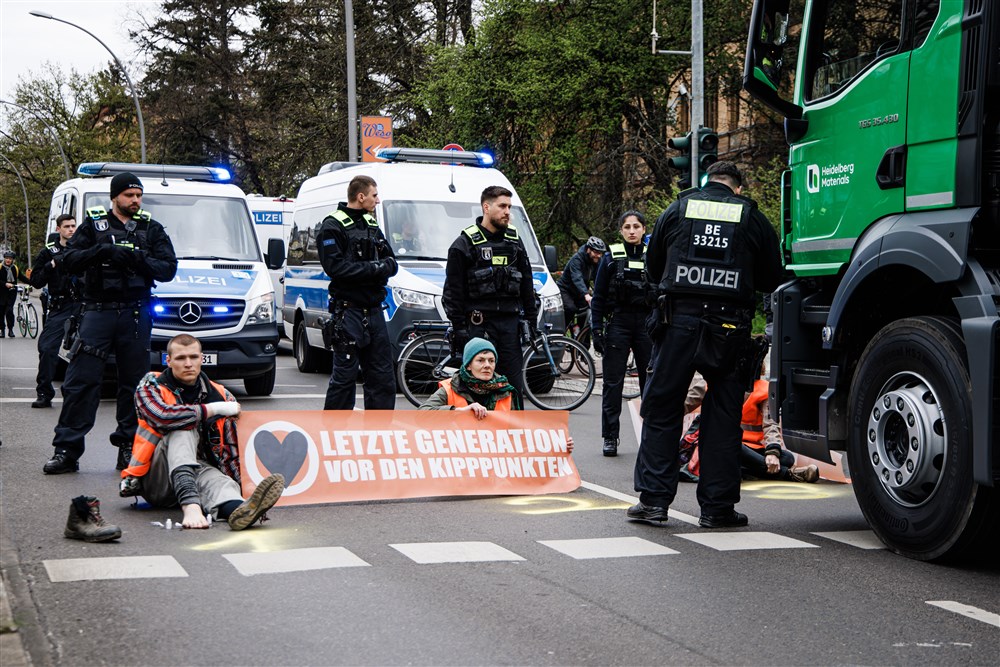The European Union’s biggest economy is in trouble, as new figures reveal Germany has officially entered a period of recession that puts the country in “the danger zone”, according to the international financial giant ING.
Echoing those sentiments, respected German financial news website dw.com added: “The poison of inflation is being fought with the antidote of high interest rates.”
The International Monetary Fund expects German economic growth to remain around the zero line. A key factor is likely to be the painful German inflation rate, which stood at 7.2 per cent in April.
The bleak outlook for Europe’s largest economy is also bad news for the entire eurozone, with a downward revision of the common currency area’s first-quarter GDP also likely.
That comes after German gross domestic product (GDP) contracted for a second quarter running, shrinking by 0.3 per cent, driven by high winter energy costs and rising inflation, all of which is hitting consumer spending and slowing economic performance.
The economic slide comes despite what is regarded as a relatively mild winter and, according to experts, the rest of the year looks equally gloomy for the European powerhouse.
Addressing what seems to be a parlous economic situation in Germany, ING economist, Carsten Brzeski, said in a note to clients: “The massive increase in energy prices took its toll in the winter half-year. A fundamental improvement is not in sight. All important leading indicators in the manufacturing sector are now falling as well.
“It took a couple of statistical revisions, but at the end of the day, the German economy actually did this winter what we had feared already since last summer,” he said.
“The warm winter weather, a rebound in industrial activity, helped by the Chinese reopening and an easing of supply chain frictions, were not enough to get the economy out of the recessionary danger zone.”
Data suggests that the high inflation rate is eroding German consumers’ purchasing power, with private households spending less than in the previous quarter on staples such as food and clothing.
“The German consumer has fallen to its knees under the burden of immense inflation and [this] has dragged the entire economy down with it,” said Deka-Bank official Andreas Scheuerle. Government consumer spending also declined by almost five per cent compared to the previous quarter.
Germany’s Federal Finance Minister, Christian Lindner, offered succour to the public and wider EU, saying: “To counteract this [recession], the government will speed up planning and approval procedures and attract more skilled workers.” In addition, he said, the government wants to improve the promotion of research in order to improve investment conditions.
“There will be no tax increases,” he also pledged, adding that the opposition had criticised the economic policy of the so-called traffic-light government.
Countering Lindner’s relatively upbeat protestations, CDU leader, Friedrich Merz, said: “This has to wake up the Chancellor. The way his traffic-light government is working, many companies doubt the future of Germany as a business location.”
Regarding wider implications for the eurozone, Andrew Kenningham, chief Europe economist at Capital Economics, told DW he expects the economic area’s GDP growth to be 0.0% in the first quarter from minus 0.1%, meaning the bloc will avoid a technical recession, albeit by the slimmest of margins.
As well as Germany, the wider eurozone is also reeling from high inflation and rising interest rates, squeezing household consumption and business investment. The manufacturing sector is struggling with a sharp decline in new orders, although the services sector remains a relatively bright spot as families hit by domestic price hikes look for relief by spending on travel and leisure.
The overall forecast for the EU Member States is unlikely to be sunny again anytime soon as the European Central Bank’s ongoing increase in interest rates to curb demand and reduce prices is anticipated to keep the economic situation bleak.
Inflation in the eurozone area, which stood at 7% in April, continues to surpass the central bank’s 2% target by far, meaning the cloudy outlook is set to remain in place for the foreseeable future.





